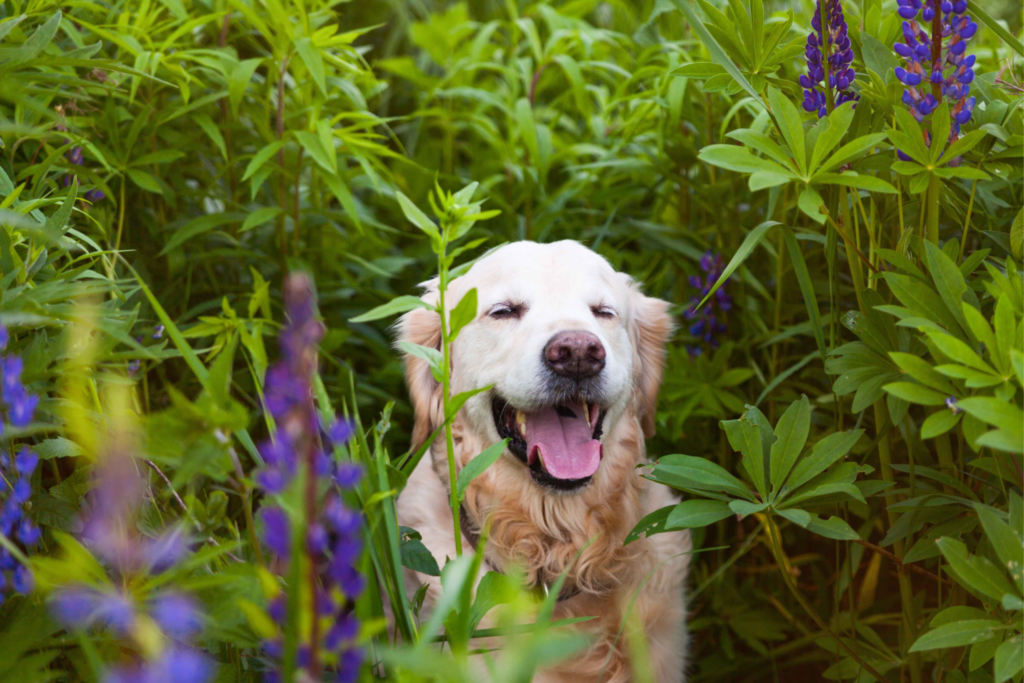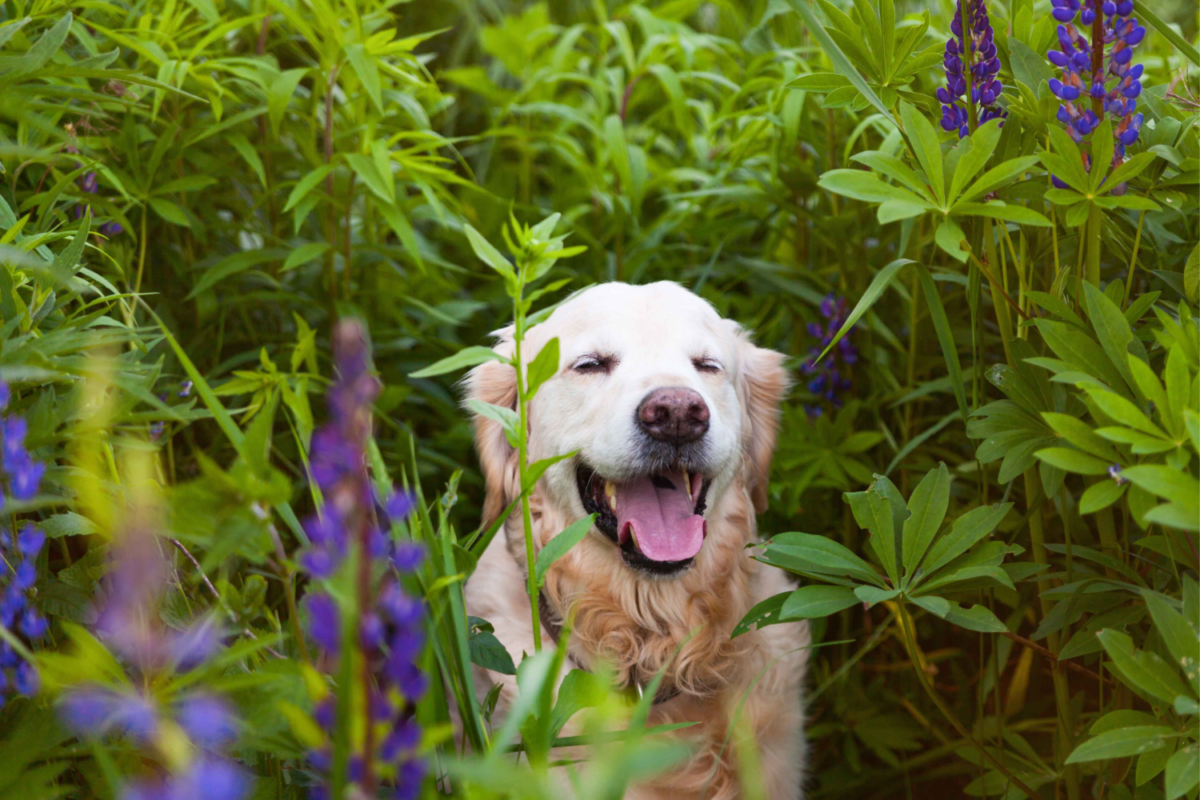Gardening With Your Pup: Plants Safe for Dogs
Posted on April 20, 2022 by Pinnacle Pet

Warmer temperatures means more time playing outdoors or even raising a farm fresh vegetables, but with the rising temps comes the rising threat of pests that not only bug your pup but you as well. If you’re thinking about planting a garden check out these helpful plants that not only repel nasty pests but are safe for your curious pup to check out.
Dog-Safe Plants
- Lavender and Chamomile
- Both have a calming, soothing effect for dogs while giving off a sweet scent that repels pests, like mosquitoes. Thankfully lavender is a hardy plant compared to others that are more delicate so even if a curious pup’s big feet trample it down, it should come back just fine.
- Rosemary
- Another plant that adds a pleasant aroma around your home while repelling mosquitoes. Although it won’t get rid of them completely, it also helps protect your pup from fleas, ticks, and flies.
- Be aware there are some studies that show that dogs who are prone to seizures are more at risk if they ingest rosemary so be sure to keep an eye on your pup or keep it out of reach in a pot.
- Basil
- This plant not only is safe for your pup and can be used in cooking, it’s also toxic to mosquito larvae! Which helps keep the population down so you and your pet can enjoy playing outside in the yard.
- Catnip
- Stronger and effective than the chemicals commonly found in store-bought pest repellents while being safe for your pup.
- You can even make your own nontoxic (to humans and pets) pest repellent spray by mixing a little catnip and water
- Bee Balm
- Is an interesting herb that is considered to be part of the mint family as it has many benefits. From repelling mosquitoes while attracting hummingbirds and butterflies to having beneficial medical properties for dogs such as aiding digestion, calming, and as a wound dressing
- If you are interested in using bee balm for it’s medical properties then make sure to do your research before using the herbs on your dogs, as they must be used in certain ways.
- Lemon balm
- This herb of the mint family is also great for repelling mosquitoes, flies, and ants. In moderate quantities, mint is safe for dogs to chew on which gives the additional benefit of better breath or you can even crush up the leaves to rub along your dog’s coat for a fresh minty lemon scent
A Minty Side Note
Plants that are part of the mint family are considered invasive as they can easily take over an area. Because of their strong roots which makes them difficult to remove, it might be better to have them planted in pots.
Unusual Dog Behavior:
Always keep any eye on your pup, especially if it’s a new plant. Just in case if your pup has any reactions you can then let your veterinarian know what plants they have been around. Even “dog-friendly” plants can cause an obstruction or upset stomach if too much foriegn plant material is eaten. In fact, if your dog does end up eating too much and can’t digest the plant material, he may vomit to get it out of his system. Some unusual dog behavior or adverse reactions to a plant include:
- Coughing
- Gagging
- Sneezing
- Vomiting
- Decreased Appetite
- Pawing at Mouth or Nose
- Vomiting
- Diarrhea
- Lethargy
- Excessive Drooling or Itching
- Intestinal blockage -may notice that they are not producing any poop
So if you notice any unusual behavior or anything concerning, contact your veterinarian immediately.
Always Research “Dog-Friendly” Garden Plants
Anyone who raises a puppy and plants knows that some plants can be harmful to your pup if chewed or ingested. So whether you’re adding a potted plant to brighten your living room or planting your seasonal garden, always research the plants to ensure they aren’t going to be a hazard. Here is another helpful article about making your garden and yard more dog-safe.
